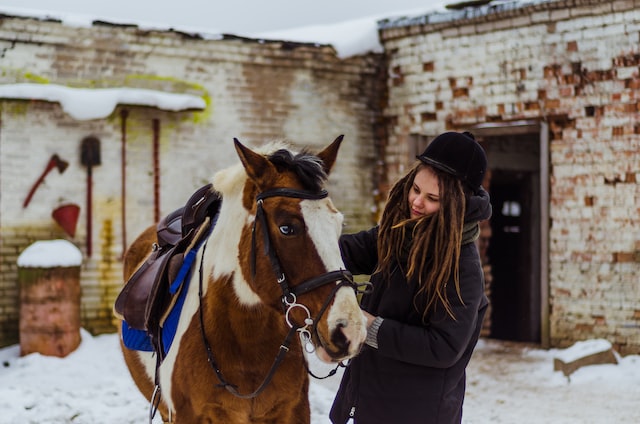Horses are incredibly unique animals, and that means that there’s not a one-size-fits-all formula when it comes to how to keep them healthy and thriving. But what about with food? Surely all horses should be eating the same things, right? Unfortunately, this isn’t the case! With such varying dietary requirements depending on their size and breed, it can be difficult to determine exactly which foods are best for your horse. Here are ten foods you should be feeding your horse, to help keep your beloved horse happy and healthy!
1. Alfalfa
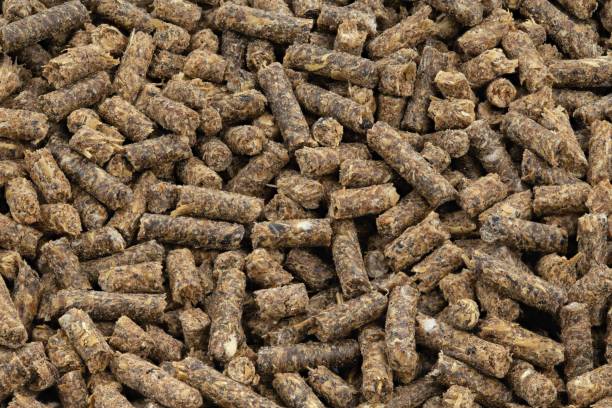
Alfalfa is a high protein food and an excellent source of vitamins, minerals, and enzymes. It is a good idea to mix alfalfa with other types of hay because it can be rather hard on their digestive system if they are eating nothing but alfalfa. Alfalfa also has the tendency to swell in the stomach which can lead to colic.
2. Barley
Barley is a good source of fiber for horses. This can help reduce the chance of constipation and colic. Barley also has been shown to reduce the chances of laminitis, which is when a horse’s hoof grows too long and becomes sensitive. Barley offers many health benefits for horses, so it should be an important part of any horse’s diet.
3. Oats
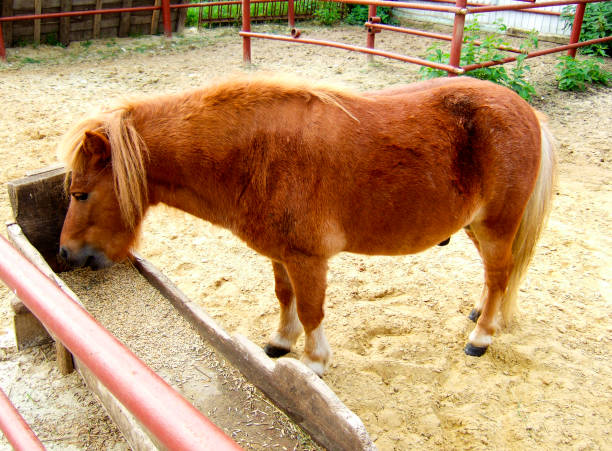
Oats are the most popular horse feed, and for good reason. They are rich in fiber and gluten, which help keep your horse’s gut healthy. The carbohydrates in oats also provide energy for your horse to exercise for long periods of time.
4. Sweet Potatoes
Sweet potatoes are a rich source of manganese and vitamin C, both nutrients essential for good horse health. Without these two crucial ingredients, your horse’s growth could be stunted and their immune system could become weak. Sweet potatoes also contain high levels of beta-carotene, which is great for the eyes and immune system. Additionally, sweet potatoes can help with hoof care by strengthening the hoof wall and providing additional calcium.
5. Dried beans and peas
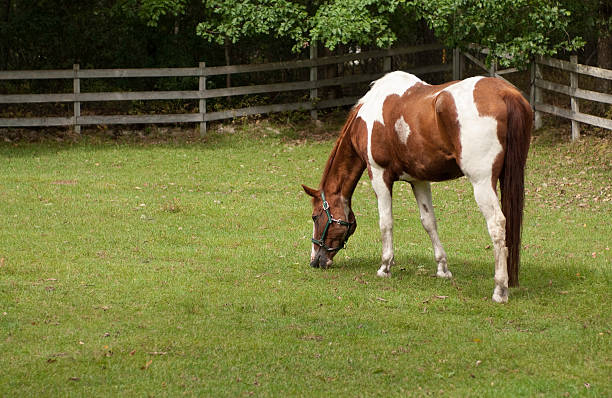
Dried beans and peas are a great source of protein, fiber, and carbohydrates. To give your horse a serving, measure out the amount of dry beans or peas you want to feed him and then pour boiling water over them. Allow the mixture to soak for about 10 minutes before feeding it to your horse. For example, if you want to feed him half a cup of dried beans or peas, add one cup of hot water and soak them for 10 minutes before feeding it to him.
6. Bananas
Bananas are a great food to feed your horse because they’re easy to digest, which is especially important if your horse has a sensitive stomach. Bananas also contain potassium, which is necessary for the health of your horse’s heart and nervous system. Plus bananas are full of fiber, which helps control your horse’s hunger so he doesn’t overeat.
7. Wheat bran
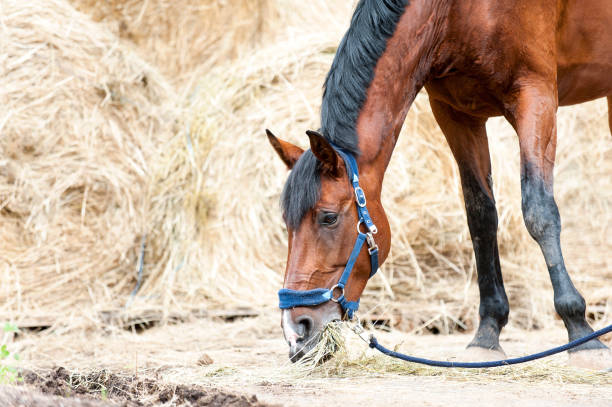
Wheat bran is often recommended as an ideal feed for horses because it has a high fiber content which can help to keep the horse’s digestive system healthy. It also has a low carbohydrate and fat content, which makes it an excellent choice for those who are looking to reduce the amount of calories their horse is consuming. This type of food is also beneficial for horses that are prone to ulcers or colic, and it can help them avoid developing these ailments in the future.
8. Canned Pumpkin
Canned pumpkin is a great idea for adding fiber to your horse’s diet. It can also help them maintain healthy gut bacteria. If you’re looking for ways to introduce fiber into your horse’s diet, this is a great option.
9. Unsulphured Blackstrap Molasses
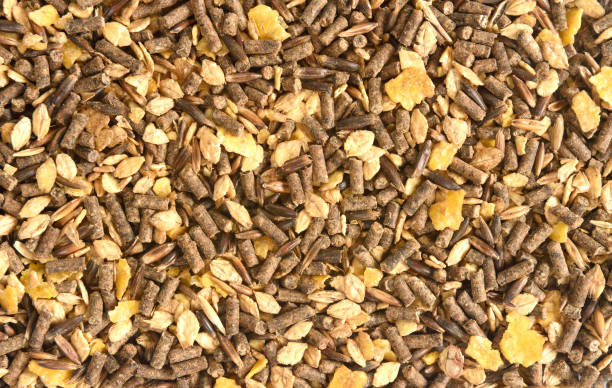
Unsulphured blackstrap molasses is a great food to feed your horse because it has many nutrients and minerals. It also contains iron, which helps with blood production in the horse’s body. Another benefit of feeding your horse unsulfured blackstrap molasses is that it has calcium, which protects their teeth and bones from getting brittle or breaking. This food can be fed to horses as often as once a day or every other day.
10. Salt
Salt is an essential mineral that horses need to maintain fluid balance, blood pressure and muscle contraction. It can be found in many different types of food, such as salt blocks or salt licks which also come in a variety of flavors like apple or molasses. Just like humans, horses also have a natural craving for salt, so they are more likely to eat food containing it.
